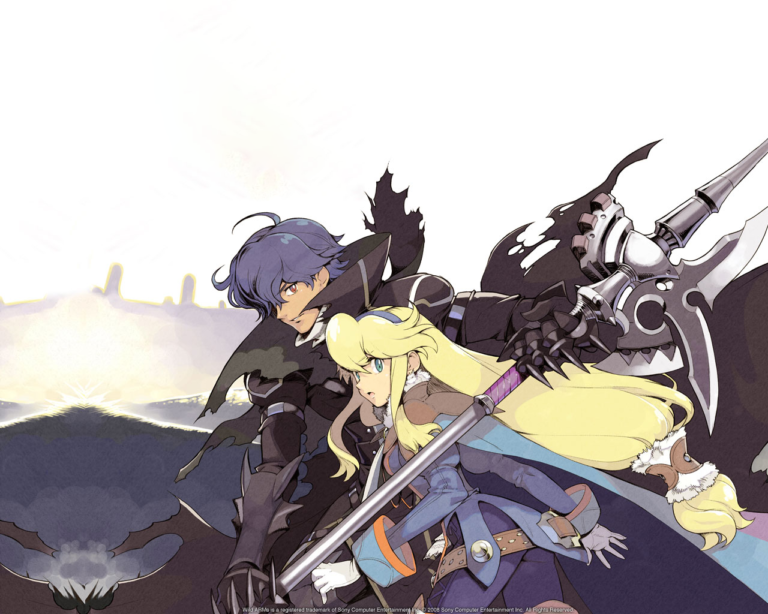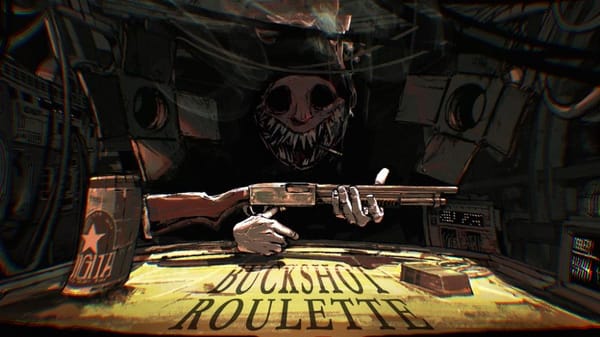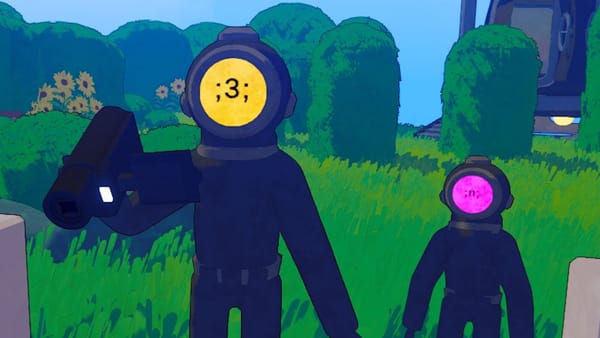The State of Employment in Wild Arms XF - LudoLudo Dissonance

Written by Rinoa Carmichael
Wild Arms XF* has the best job system in gaming.
*XF is pronounced CrossFire.

Since inception, classes have been a core part of RPG systems. Classes create defined roles and growth for characters helping everyone feel different and unique. However, almost as soon as classes came to be, multiclassing, taking diversity instead of raw power also came about. Dragon Quest III in 1988 popularized a new paradigm that would be cemented and named by Final Fantasy V, the “Job System.”
The job system is basically a more elaborate and ever-changing multiclassing system. Where you can spend some time taking on a class such as healer, and then being able to use those abilities when you change your class to a warrior or monk that would usually not have access to healing. While each game has its own spin on the concept, most of these systems build from the formula established by Final Fantasy V.

As job systems developed, generally the amount of skills from other jobs you could equip has increased within the genre, and allows for a lot of unique, clever customization. But these systems aren’t perfect. For an example, take a look at this great review of Bravely Default 2, one of the most recent games to use a classic job system, over on fanbyte.
But here’s the TL;DR that’s relevant to this piece – job systems suggest a lot of fun, but often put huge barriers into appreciating said fun. With each job you start from zero, and it really feels like you are leveling up a new character albeit with a few boons from your previous hard work, and you have to earn new and interesting skills.

It’s logical, it makes sense that it takes a while to learn skills, and RPGs in general really value this “earning” over many things. There’s an appeal to it. One of the genuinely cool things about job systems are the constant flow of new skills and new options. Which is in theory what experience points had always represented. Job systems shine because they allow you to grind wide, which means you are constantly gaining new skills of all sorts.
But what if I told you there was another way? A game that both kept the satisfying sense of earning skills and power, but without that annoying opening job grind.

This is where the humble little and often ignored magical wild west hex based strategy RPG Wild Arms XF* comes in, with what some have called “the best job system in gaming.”
*XF is still pronounced CrossFire.
Maybe that is an exaggeration, but it does speak to how refreshing Wild Arms XF* is when compared to its peers. Traditionally in other RPGs you will learn skills in a linear fashion by leveling up the current job you are in. Always withholding the job’s true strengths until the end of the grind. In Wild Arms XF* however you immediately have access to every skill that a job entails, without the push to grind for new abilities. And rather than earn new abilities for the job itself, you simply earn those abilities for other jobs to use.

This system has a few major boons for the game, but two stand out to me.
The first is that with every job always having all of its skills unlike other customization heavy games, Wild Arms XF can always know you have access to certain tools. This means it can design levels around tools and abilities knowing that the player will have the tools to deal with them. This is not common in a lot of high customization games. While XF takes this too far, with many levels feeling more like puzzles asking “what team was the level designed for?” it at least is constantly pushing the player to really come to grips with the nuances of each job.
The second boon is that it lets players experiment with wilder things first. Since you always have a “complete” class, as opposed to mixing and matching incomplete tool sets, you get to create some fascinating stuff almost as soon as the game begins. Which is rare, even in the most beloved job systems.

These both seem like simple things, but I find that so many games with these systems save so many of the interesting choices for the end of the experience, by which point in these games I am often exhausted with the systems just want the experience to end, often before getting to engaging with the most interesting parts of the system.
Wild Arms XF is mostly forgotten. Part of a series that never reached the heights of Final Fantasy, on the PSP (and vita), a system ignored by much of the world. It’s never part of a top 10 list, but it’s also never going to be a game that sits on a “most obscure games you’ve NEVER HEARD OF” one either. Existing in that perfect between space, ripe to be forgotten by everyone other than those who happened to play it at the time, and weren’t turned off by the high difficulty.
Wild Arms XF addresses some of the core issues of job systems, and in fact, customization in general. It has content that can actually expect you to have certain tools, and it brings a lot of the situations, and joy, that tend to occur late in customization focused games much earlier into the experience. I think we could see some truly great customization focused RPGs if more designers Xed* paths with this..
*X is still pronounced cross.



